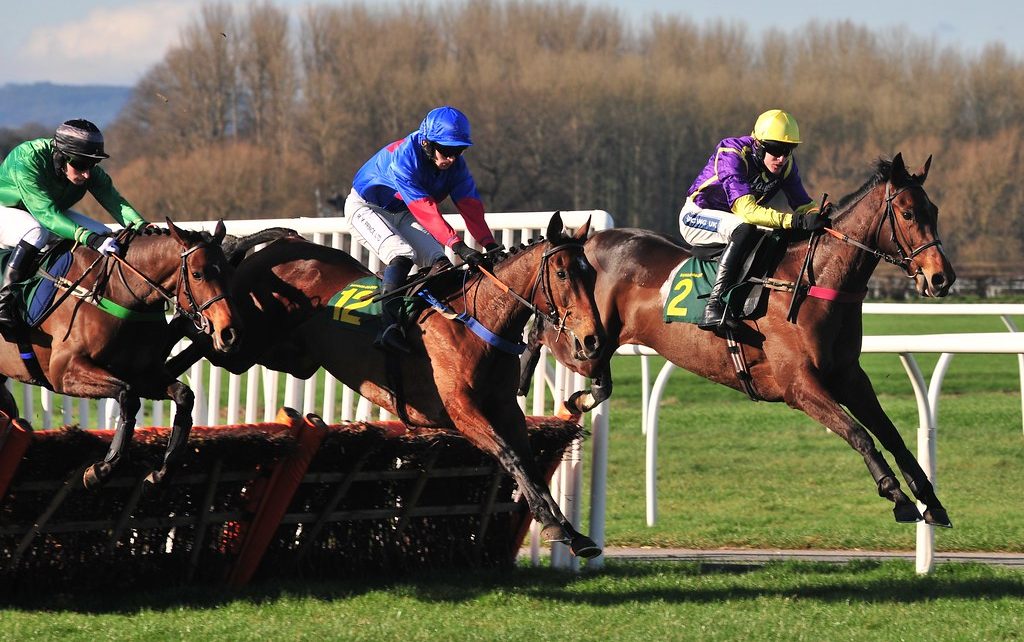Ahead of the Gold Cup, animal rights campaigners have renewed calls for jump racing to be banned following the deaths of Highland Hunter and Ose Partir at Cheltenham Festival.
But behind the scenes a far more morbid story was unfolding, as it was slowly revealed that two of the horses, Highland Hunter and Ose Partir, had died.
♥️ Our thoughts are with connections of Ose Partir who saadly sustained a fatal injury in our last race pic.twitter.com/1fDSEqZOuE
— Racing TV (@RacingTV) March 12, 2024
Highland Hunter pulled up during the Ultima Handicap Chase and suffered a fatal heart attack, before Ose Partir was killed after sustaining an injury during a fall in the Boodles Juvenile Hurdle.
The death of Highland Hunter was particularly tragic as the horse led the funeral procession for jockey Keagan Kirkby last week.
Highland Hunter, who led the procession at Keagan Kirkby's funeral last week, died after being pulled up at the Cheltenham Festival 💔 pic.twitter.com/nPFafi6oMO
— Racing Post (@RacingPost) March 12, 2024
Kirkby, who died after he fell from a horse at a race in Kent last month, looked after Highland Hunter and said that the 11-year-old was his favourite horse.
Speaking to ITV, Fergal O’Brien, who trained Highland Hunter, said: “It’s obviously a tremendously sad day for the yard.
“I suppose the only comfort we can take is that he is with Keagan now.”
RIP Highland Hunter 💔
— At The Races (@AtTheRaces) March 12, 2024
Our thoughts are with Fergal O'Brien, Paddy Brennan and all connections pic.twitter.com/De4K7rZcPv
Dene Stansall, Horse Welfare Consultant for Animal Aid, told Park Life Sport: “As sad as it was, it was predictable.
“It’s nothing out of the ordinary, but each time you see a horse fall or hear that a horse has died it doesn’t get any easier.
“But sadly we expect these deaths at Cheltenham every year because jump racing is the most dangerous form of racing and should be banned.”
Horses DIE on the race track.
— PETA UK (@PETAUK) March 12, 2024
This is no "sport".#CheltenhamFestivalpic.twitter.com/FivdnWyMh0
Stansall and Animal Aid began the campaign to ban jump racing in 2023, following decades of work to improve the welfare of racehorses and expose the cruel practices of the racing industry.
While some improvements have been made, like changes to the fences and the reduction in the number of times horses can be whipped, progress has been slow and often impeded by what Stansall believes is an indifference within the racing industry.
“Ultimately they don’t care if horses die.”
💔 R.I.P Highland Hunter (IRE), aged 11, killed on the first day of The Cheltenham Festival 12/03/24. pic.twitter.com/THLFCB383R
— Animal Aid (@AnimalAid) March 12, 2024
“We lose around 200 horses a year on British racecourses, and even though animals are meant to be protected in our society, the racing industry is allowed to get away with this.
“They operate as the law unto themselves and refuse to concede any ground to pressures from outside organisations with regards to animal rights or animal welfare.
“They have their own subjective welfare policy which continues to allow hundreds of horses to die every year, and it’s time that these decision-making powers were taken away from them.
“Take it away from the racing industry, take it away from the British Horse Racing Authority, take it from the Jockey Club, and give it to an independent regulator that will put horse welfare first.”


